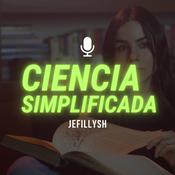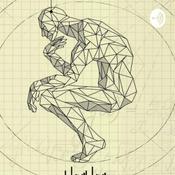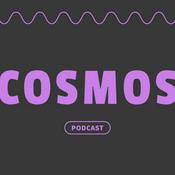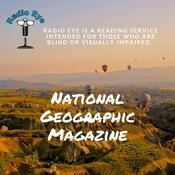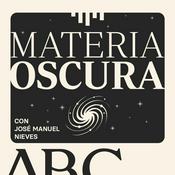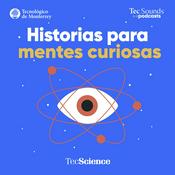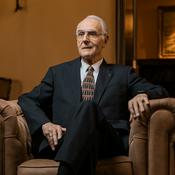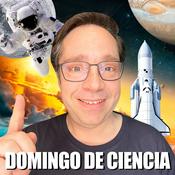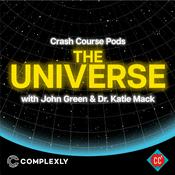594 episodios
- Documentary filmmaker Marcie Hume (BBC alum; Magicians: Life in the Impossible) joins Michael Shermer to talk about her new verité film Corey Feldman vs. the World—shot over a decade, starting in the "Corey's Angels" era and following a tour that unravels in real time.
It goes to some uncomfortable places: how celebrity can create cult-ish dynamics (not just with fans, but with the people working around them as well), how "truth" becomes a slogan—used to frame criticism as persecution and to keep tight control of the story, and how living on camera can turn real life into performance where every moment becomes part of the persona.
Then the story folds back on itself—the release of Marcie's film becomes its own drama, with last-minute legal threats and a cease-and-desist landing right before the premiere.
Marcie Hume is a documentary filmmaker, television executive, and immersive experience creator focused on how people manufacture meaning under pressure, while the story is still being written. A BBC alumna, she has originated and executive produced unscripted series for the BBC, Channel 4, Discovery, National Geographic, and A&E. Her feature documentaries Hood to Coast, Magicians: Life in the Impossible, and Corey Feldman vs. the World trace endurance, obsession, and the narratives people construct to live with extraordinary choices. Corey Feldman vs. the World is currently available to rent or buy on YouTube, Google, or Apple, even though Corey is still trying to have it removed.
Watch the trailer
Rent the film - Christopher Beha grew up Catholic in Manhattan, walked away during the New Atheist era, and spent years trying to build a secular worldview sturdy enough to live inside. It didn't hold. So he kept reading—Hume, Kant, Russell, the existentialists—and kept chasing the questions that don't let you sleep: what counts as evidence, what belief even is, and what you do when reason can't answer the things you still have to decide.
In this conversation with Michael Shermer, Beha makes a case that skepticism and belief aren't enemies—and that some debates go nowhere because people are arguing about the "branches" while standing on totally different foundations.
Christopher Beha is the former editor of Harper's Magazine and the author of four previous books, including The Index of Self-Destructive Acts, which was nominated for the 2020 National Book Award. His new book is Why I Am Not an Atheist: The Confessions of a Skeptical Believer. - Why do people risk everything for love but treat sex like it's no big deal? Why is intimacy the most expensive thing in a brothel? And why do jealousy, infidelity, and heartbreak push otherwise rational people into behavior they later can't explain?
Evolutionary biologist and sex researcher Justin Garcia, executive director of the Kinsey Institute and author of The Intimate Animal, joins Michael Shermer for a candid conversation about the biology of sex, the evolutionary logic of pair bonding, and why love—not lust—is what often pushes people past the point of reason.
Justin R. Garcia is an evolutionary biologist and sex researcher. He is Executive Director & Senior Scientist at the Kinsey Institute. He is also the Scientific Advisor to Match Group and Match.com, where he provides expertise to the company's annual Singles in America study. His research has been featured in outlets like The New York Times, The Wall Street Journal, USA Today, TIME, Cosmopolitan, and Vanity Fair. His new book is The Intimate Animal. - In this episode, Michael Shermer walks through the core ideas behind his new book Truth: What It Is, How to Find It, and Why It Still Matters, breaking down how humans confuse meaning with reality, stories with facts, and confidence with correctness.
He also explains why changing your mind is a strength, not a flaw; why extraordinary claims really do require extraordinary evidence; and why "just asking questions" isn't as innocent as it sounds.
BUY THE BOOK
Amazon
Shop Skeptic (autographed)
"Michael Shermer reminds us that the search for truth is not a luxury, but a necessity. This book is a powerful argument for why reality matters and a practical toolkit for how to find it."
―Sabine Hossenfelder
"Michael Shermer has a fine record as a long-time crusader for evidenced rationality. This fascinating and wide-ranging book should further enhance his impact on current controversies."
―Lord Martin Rees
"Michael Shermer is one of our most influential intellectuals. Truth lances the myth of truth's subjectivity, arguing (provocatively) that truth can generate moral absolutes. This stimulating, excellent book inspires you to spread the word that the Earth is not flat and that truth matters."
―Robert Sapolsky
"Michael Shermer has spent his career grappling with the slipperiest word in our language: truth. As someone who knows firsthand what happens when truth gets lost in noise and narrative, I'm grateful for Shermer's clear-eyed insistence that truth is not only real, but necessary."
―Amanda Knox
"Michael Shermer pulls no punches: in a world where opinion too often masquerades as fact, he dismantles delusion and arms us with the tools to meet reality head-on."
―Brian Greene
Más podcasts de Ciencias
Podcasts a la moda de Ciencias
Acerca de The Michael Shermer Show
The Michael Shermer Show is a series of long-form conversations between Dr. Michael Shermer and leading scientists, philosophers, historians, scholars, writers and thinkers about the most important issues of our time.
Sitio web del podcastEscucha The Michael Shermer Show, StarTalk Radio y muchos más podcasts de todo el mundo con la aplicación de radio.net

Descarga la app gratuita: radio.net
- Añadir radios y podcasts a favoritos
- Transmisión por Wi-Fi y Bluetooth
- Carplay & Android Auto compatible
- Muchas otras funciones de la app
Descarga la app gratuita: radio.net
- Añadir radios y podcasts a favoritos
- Transmisión por Wi-Fi y Bluetooth
- Carplay & Android Auto compatible
- Muchas otras funciones de la app


The Michael Shermer Show
Escanea el código,
Descarga la app,
Escucha.
Descarga la app,
Escucha.







